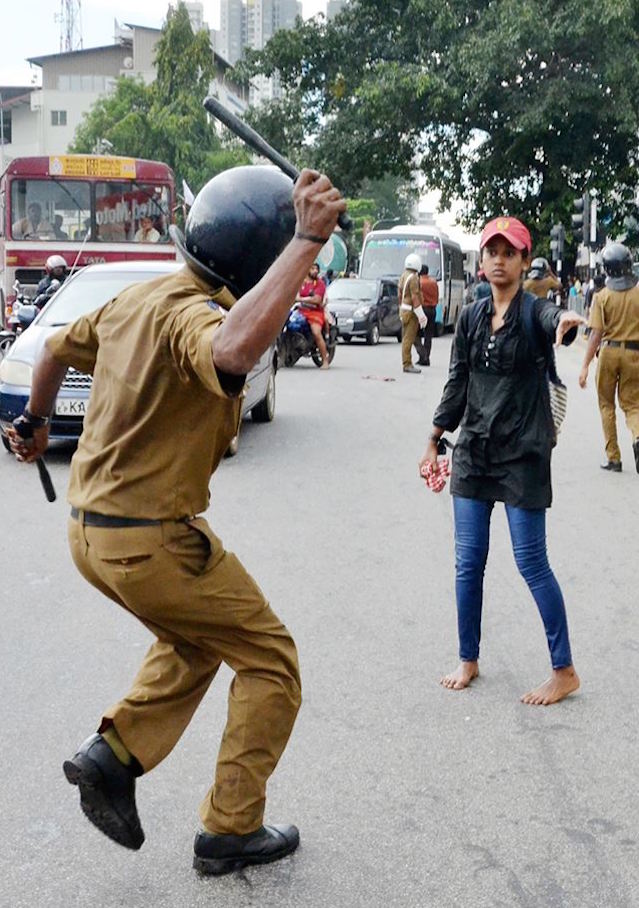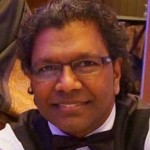Politics Of Policing
By Suren Rāghavan –October 31, 2015

Police departments all over the world are a symbolic power of the state over its citizens. The morale argument of law and order has never been a reality as police departments work under political and intuitional power structures essentially are hegemonic. Unlike the military such oppressive state ideology are often mobilized by police and CID departments under clear political leadership. It is for this reason that police often mounts its brutality against the most marginalize and peripherialized sections of the society. It is the female sex worker who already stigmatized by the ‘religious’ moralities that the police is eager to arrest not the male – with disposable income on sex. It is the street pick pockets the police will hunt down – not the white collar robbers at commercial banking system who even charge us for using an ATM machine to withdraw our own money we had deposited. It is the street corner drug addict the police are after not so much the drug baron who is often is well connected and powerful. Gay communities all over the world still experience less human treatment at police hands. Police brutalities against the Blacks in the US and Dalits in India are often reported but quickly forgotten. The text book terror politics of LTTE first sprang against the subhuman (mostly Sinhala speaking) policemen under pro south politicians like Jaffna major Alfred Duraiappa (major and SLFP organizer) on 27 July 1975.
 For the state- police is the agency of social coercive discipline at taming the civil spirit. It is for this reason that the police departments are powered to inquire into the minute social life of civilians from ‘correct parking’ to ‘correct park behavior’ especially in a state like Sri Lanka. The police are empowered by the state to dictate to me how and where I should (not) kiss my lover.
For the state- police is the agency of social coercive discipline at taming the civil spirit. It is for this reason that the police departments are powered to inquire into the minute social life of civilians from ‘correct parking’ to ‘correct park behavior’ especially in a state like Sri Lanka. The police are empowered by the state to dictate to me how and where I should (not) kiss my lover.
In Sri Lanka the every form of authority has come under ‘abnormal anti-social normalcy’ during the last 35 years of war and its emergency rule. Excessive, draconian and brutal anti liberal acts such as the Prevention of Terrorism Act (PTA) has become the norm than the exception. The entire law enforcement structure has developed a culture of brutality and sub human services under Emergency Regulations. It is no secret that majority of police stations in Sri Lanka has records of arbitrary arrest and torture and even murder under custody. I do not think any serious research study has been done to detect this sub cultural control culture. It is not merely the police department alone. I have relatives/friends who had held very senior positions in the department. They confess that is the entire system that needs an overall reshaping. Every successful government in power had used the department and its subservient officials to advance its oppressive rule on the liberty of the people and the last ten years under the Rajapaksa regime it touched the zenith. Protecting corrupt politicians and their horrible act of rape, murder and violence against unarmed civilians and even visiting tourist became common incidents.

